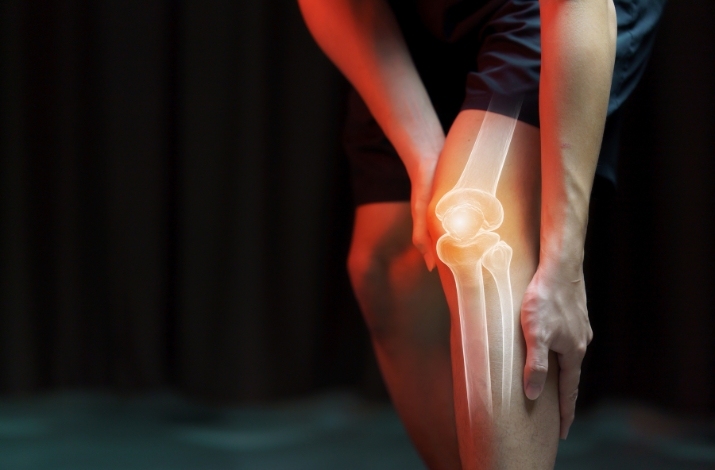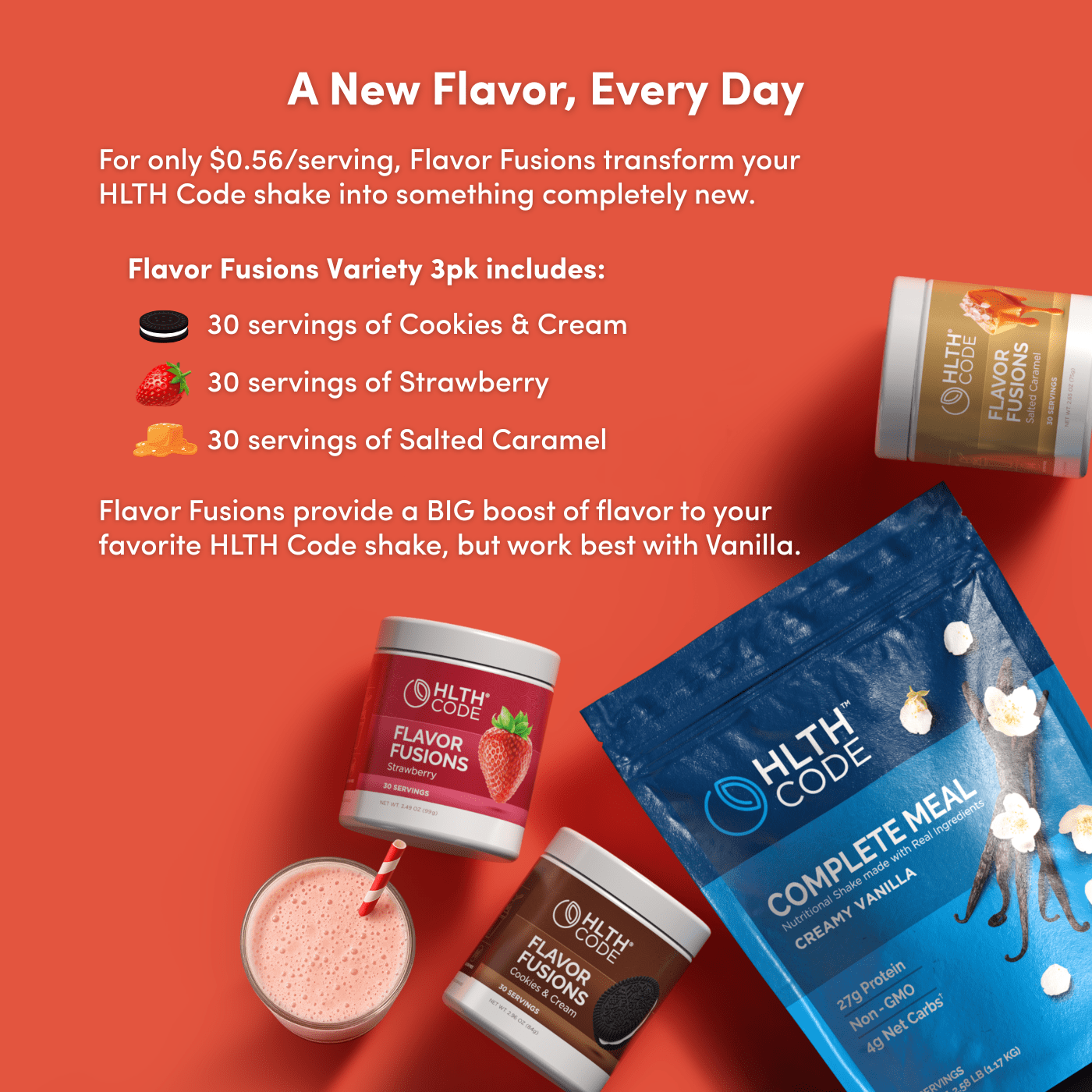Eat to Ease: The Best Diet to Fight Joint Pain

Whether it’s arthritis, inflammation, or just the normal wear and tear of daily life, joint pain can be debilitating. There are many modalities to find relief, from conventional medicine pharmaceuticals to physical therapy, but one of the most important treatments is often overlooked – dietary changes. A low-carb or ketogenic diet is particularly beneficial among the various dietary approaches.
In this article, we’ll explore how making specific changes to your diet can help ease joint pain, reduce inflammation, and improve overall mobility. Let’s dive into the science behind it and the practical steps you can take today.
The Connection Between Diet and Joint Pain
Joint pain, particularly conditions like osteoarthritis or rheumatoid arthritis, is often driven by inflammation. When inflammation is present, chemicals are released that irritate the joints, leading to pain and stiffness. This is where diet can be beneficial – some foods promote inflammation, while others help to reduce it.
The standard Western diet, high in refined carbohydrates, sugar, and processed fats, is notorious for triggering inflammatory responses. Foods like bread, pasta, sugary snacks, soda, fried foods, etc. can lead to spikes in blood sugar, increase body fat, and produce inflammatory cytokines, worsening joint pain.
Compared to inflammatory Western diets, anti-inflammatory diets focusing on nutrient-dense foods have been shown to reduce joint pain, improve mobility, and even slow the progression of joint diseases. This is where lower-carb or ketogenic diets come into play.
How Low-Carb/Ketogenic Diets Reduce Inflammation
The ketogenic diet switches your body to a metabolic state that profoundly reduces inflammation, a key factor in joint pain. It’s a high-fat, moderate-protein, and very low-carbohydrate diet that shifts your body into a state of ketosis.
Here’s why keto can be a game-changer for your joints:
- Lowered Inflammation: As previously stated, a ketogenic diet’s anti-inflammatory effects are the primary mechanism by which a ketogenic diet helps joint pain. When you lower your consumption of carbohydrates, you have far fewer blood sugar spikes and insulin surges. High levels of insulin promote inflammation, and reducing this can significantly decrease inflammatory markers. Research has shown that ketones – especially BHB (beta-hydroxybutyrate) – have direct anti-inflammatory effects. They block inflammasomes, a group of proteins involved in the body’s inflammatory response. Ketones can help reduce chronic inflammation at its root.
- Oxidative Stress Reduction: Oxidative stress occurs when free radicals and antioxidants are imbalanced. Free radicals damage cells and tissues, contributing to joint degeneration and pain.
- Weight Loss: Carrying extra weight puts immense pressure on your joints. Studies have shown that even small amounts of weight loss can alleviate joint pain and improve mobility. For every one lb of weight lost, there is about four pounds less pressure exerted on your knees.
- Gut Health Improvement: Emerging research points to a connection between gut health and joint pain. An imbalanced gut microbiome can lead to increased inflammation throughout the body, including the joints. A low-carb/ketogenic diet, rich in healthy fats and fibrous vegetables, promotes a better gut environment by reducing inflammation-causing foods like sugar and refined grains. A healthy gut calms systemic inflammation and, by extension, reduces joint pain.
Foods to Include for Joint Health
So, what foods should you eat to ease joint pain that still fit within a low-carb/ketogenic lifestyle? Here is a list of anti-inflammatory, joint-friendly foods to include in your diet.
- Fatty Fish: Salmon, mackerel, sardines, and other fatty fish are rich in omega-3 fatty acids, which have potent anti-inflammatory effects. Omega-3 helps reduce the production of inflammatory compounds and can directly benefit those suffering from arthritis or chronic joint pain.
- Olive Oil: Extra-virgin olive oil, incredibly rich in oleocanthal, has anti-inflammatory properties similar to those of NSAIDS (Non-steroidal anti-inflammatory drugs). Drizzling olive oil on salads or using it as a cooking fat is an excellent way to boost joint health.
- Avocados: Loaded with healthy monounsaturated fats and antioxidants like vitamin D, avocados help combat oxidative stress and inflammation. They’re also a great source of potassium, which helps with joint pain caused by fluid retention.
- Green Leafy Vegetables: Low in carbs, but high in antioxidants, vitamins and minerals.
- Bone Broth: Rich in collagen, glucosamine, and chondroitin; all compounds that help support joint health.
- Berries: Also high in antioxidants, berries like raspberries are a great way to fight inflammation without spiking your blood sugar. Their high vitamin C content also supports collagen production.
- Eggs: A rich powerhouse of nutrients like vitamin D and choline.
- Turmeric, Ginger, and Rosemary: All great herbs to add in with potent anti-inflammatory properties.
- Cabbage and Cruciferous Vegetables: High in fiber, vitamins, and minerals, they contain sulforaphane, a compound that helps reduce inflammation and slows cartilage breakdown in joints.
Foods to Avoid
To maximize the benefits of your low-carb or keto diet, it’s important to avoid foods that promote inflammation, such as:
- Refined carbs (white bread, pastries, sugary snacks)
- Sugary beverages (soda, fruit juice, milkshakes, etc)
- Processed vegetable oils (soybean oil, corn oil, etc)
- Alcohol
These foods may spike inflammation, leading to increased joint pain and stiffness.
Conclusion
An anti-inflammatory diet is not a quick fix, but it’s a potent tool for managing joint conditions and pain. By lowering inflammation, you’re not just managing pain – you’re taking steps to improve long-term joint health and quality of life. Taking control of your diet is one way to fight inflammation, reduce joint pain, and regain mobility – one bite at a time!
Temple Stewart is a Registered Dietitian Nutritionist specializing in low-carb/ketogenic diets. She graduated from the University of Tennessee before starting her career at the Veteran’s Affairs hospital in Bay Pines, Florida. She now operates a telehealth private practice focusing on health and weight loss. You can find her on Instagram @The.Ketogenic.Nutritionist.
References
- Pinto, A., Bonucci, A., Maggi, E., Corsi, M., & Businaro, R. (2018). Anti-Oxidant and Anti-Inflammatory Activity of Ketogenic Diet: New Perspectives for Neuroprotection in Alzheimer’s Disease. Antioxidants, 7(5). https://doi.org/10.3390/antiox7050063
- Schönenberger, K. A., Schüpfer, A. C., Gloy, V. L., Hasler, P., Stanga, Z., Kaegi-Braun, N., & Reber, E. (2021). Effect of Anti-Inflammatory Diets on Pain in Rheumatoid Arthritis: A Systematic Review and Meta-Analysis. Nutrients, 13(12), 4221. https://doi.org/10.3390/nu13124221
- Goldberg, R. J., & Katz, J. (2007). A meta-analysis of the analgesic effects of omega-3 polyunsaturated fatty acid supplementation for inflammatory joint pain. Pain, 129(1-2), 210–223. https://doi.org/10.1016/j.pain.2007.01.020
- Raad, T., Griffin, A., George, E. S., Larkin, L., Fraser, A., Kennedy, N., & Tierney, A. C. (2021). Dietary Interventions with or without Omega-3 Supplementation for the Management of Rheumatoid Arthritis: A Systematic Review. Nutrients, 13(10), 3506. https://doi.org/10.3390/nu13103506
- Jalili, M., Kolahi, S., Aref-Hosseini, R., Mamegani, M. E., & Hekmatdoost, A. (2014). Beneficial Role of Antioxidants on Clinical Outcomes and Erythrocyte Antioxidant Parameters in Rheumatoid Arthritis Patients. International Journal of Preventive Medicine, 5(7), 835-840. https://www.ncbi.nlm.nih.gov/pmc/articles/PMC4124560/
- Panche, A. N., Diwan, A. D., & Chandra, S. R. (2016). Flavonoids: An overview. Journal of Nutritional Science, 5. https://doi.org/10.1017/jns.2016.41
- Kunnumakkara, A. B., Sailo, B. L., Banik, K., Harsha, C., Prasad, S., Gupta, S. C., Bharti, A. C., & Aggarwal, B. B. (2018). Chronic diseases, inflammation, and spices: How are they linked? Journal of Translational Medicine, 16. https://doi.org/10.1186/s12967-018-1381-2
- Bustamante, M. F., Agustín-Perez, M., Cedola, F., Coras, R., Narasimhan, R., Golshan, S., & Guma, M. (2020). Design of an anti-inflammatory diet (ITIS diet) for patients with rheumatoid arthritis. Contemporary Clinical Trials Communications, 17. https://doi.org/10.1016/j.conctc.2020.100524
- Alkadi H. (2020). A Review on Free Radicals and Antioxidants. Infectious disorders drug targets, 20(1), 16–26. https://doi.org/10.2174/1871526518666180628124323
- Landry, M. J., Crimarco, A., & Gardner, C. D. (2021). Benefits of Low Carbohydrate Diets: A Settled Question or Still Controversial? Current Obesity Reports, 10(3), 409. https://doi.org/10.1007/s13679-021-00451-z
- Della Corte, K. W., Perrar, I., Penczynski, K. J., Schwingshackl, L., Herder, C., & Buyken, A. E. (2018). Effect of Dietary Sugar Intake on Biomarkers of Subclinical Inflammation: A Systematic Review and Meta-Analysis of Intervention Studies. Nutrients, 10(5). https://doi.org/10.3390/nu10050606
- Mackus, M., Kwon, O., Krishnakumar, I. M., Garssen, J., Kraneveld, A. D., Scholey, A., & Verster, J. C. (2020). The Inflammatory Response to Alcohol Consumption and Its Role in the Pathology of Alcohol Hangover. Journal of Clinical Medicine, 9(7). https://doi.org/10.3390/jcm9072081
- Schönenberger, K. A., Schüpfer, C., Gloy, V. L., Hasler, P., Stanga, Z., Kaegi-Braun, N., & Reber, E. (2021). Effect of Anti-Inflammatory Diets on Pain in Rheumatoid Arthritis: A Systematic Review and Meta-Analysis. Nutrients, 13(12). https://doi.org/10.3390/nu13124221
- Hart, M. J., Torres, S. J., McNaughton, S. A., & Milte, C. M. (2021). Dietary patterns and associations with biomarkers of inflammation in adults: A systematic review of observational studies. Nutrition Journal, 20. https://doi.org/10.1186/s12937-021-00674-9
This article is for informational and educational purposes only. It is not, nor is it intended to be substitute for professional medical advice, diagnosis, or treatment and should never be relied upon for specific medical advice.



















